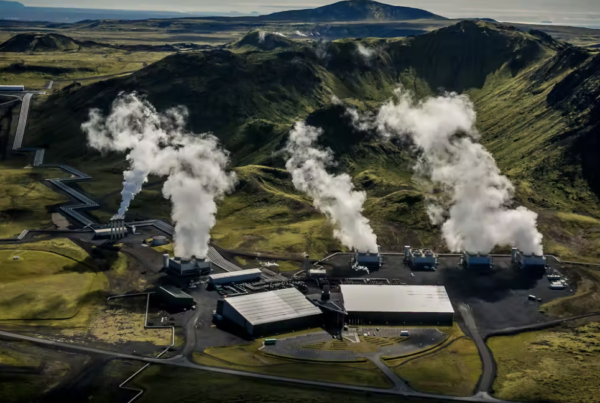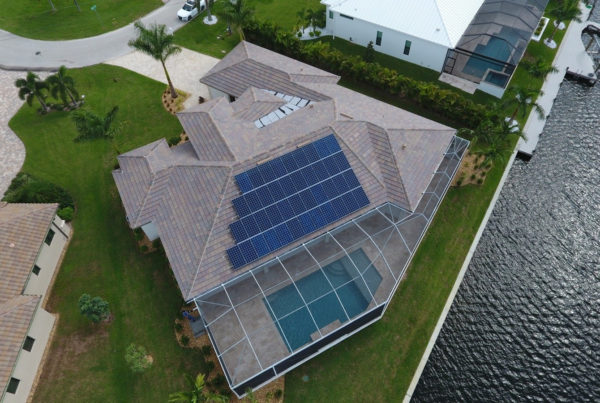This week on Animalia, we want to share a spotlight on a problematic sector of climate action being driven by corporate propaganda: Net Zero.
You’ve probably seen this popping up more and more. Companies and brands making their pledges to reach net zero emissions. A point where they are no longer contributing greenhouse gases into the environment on a net basis. Sounds great right? In theory it is, sure. However the devil is in the details. And the details time and time again behind these commitments are wrought with greenwashing and false gold that will do nothing for this planet, but everything to check the company’s PR box.
The main culprit behind this issue are Carbon Offsets. Essentially what is happening here is rather than actually reducing the carbon or methane they are emitting by changing how they provide their goods and services, they are “offsetting” those emissions with commitments to a various array of carbon and greenhouse gas reduction investments to reach net zero.
Net Zero sounds really good. It sounds progressive. It sounds like a solution. What matters though is not if or when a company reaches net zero, but how the company gets there. And by and large, nearly every corporation making this pledge is doing it via these problematic offsets.
This is the latest chapter in a long standing series spanning decades of corporate propaganda using marketing to address the climate crisis rather than actually addressing the climate crisis. It’s a scheme to maintain business as usual and make saving this planet someone else’s problem.
RECYCLING AND CARBON FOOTPRINTS
Guess which US company has committed more money to supporting recycling and ocean plastic cleanups than anyone else out there?
Coca-Cola.
Guess which US company produces more single-use plastic than any other company out there?
Coca-Cola.
Hmmmmm….a little suspicious?

There was a famous PSA in the late 70s depicting a Native American man crying after witnessing a car passing by littering roadside. Guess who funded that PSA? A consortium of Coca-Cola, PepsiCo, and Anheuser-Busch. That same group of companies provided the big push behind recycling culminating in the movement really building steam in the early 90s, and becoming the key action we can all do to save this planet. It was brilliant on their behalf. Put the responsibility on the consumer and city infrastructure to properly recycle those plastic bottles and cans, and avoid any and all accountability for producing them in the first place. It is honestly one of the most brilliant pieces of propaganda ever created.
“That ad can be seen as an important moment in the history of recycling”, argues Bartow J. Elmore, environmental historian and author of Citizen Coke: The Making of Coca-Cola Capitalism. “The companies behind the campaign successfully framed waste as a problem for consumers rather than one for the companies that manufactured the items being wasted”, he says, “and thus framed recycling as something that taxpayers should pay for.”
Who can argue with recycling? I recycle. You recycle. Trying to recycle is a good thing. But we will never recycle ourselves out of our waste issue, a topic we did an entire podcast episode on earlier this year.
Meanwhile, Coca-Cola in particular has spent millions in lobbyists successfully fighting deposit refund schemes, which would boost refillable bottles, or investing heavily in R&D to develop biodegradable packaging alternatives. It’s just business as usual. Create more plastic, look good throwing some dollars at recycling and ocean clean ups, and put the responsibility on their customers.
In 2004, a similar corporate led movement started the “carbon footprint” hogwash. This time it was BP, British Petroleum. That’s right, the same company behind the largest oil spill in US history that we are still cleaning up 11 years later, had the audacity to tell us we should be calculating our carbon footprint and working on ways to lower it.
Now think about this for a second.
What would motivate one of the most pollutive companies in the world to spend so much money asking people to measure and lower their carbon footprint? Hint, it’s not altruism. By shifting the focus away from how we get our energy and getting off of fossil fuels and into renewables, BP convinced the world the problem is us. Consumers. The choices we make. It’s our responsibility to lower our footprints.
Only, there is only so much one can do if everything around us is still powered by fossil fuel derived power. Here’s some advice if you care about this planet – never calculate your carbon footprint. It is not what you should be stressing about. It is a trap set by corporate greed. That’s not to say we all shouldn’t try to make environmental choices in what we eat, what we buy, how we live….we should 100%…but for the sake of shifting culture over time, not for lowering our carbon footprints.
Just like with recycling, the carbon footprint movement grew and grew far beyond Coca-Cola and BP. Even the New York Times dedicated long pieces on how to lower your carbon footprint. Everyone fell into this trap, me included.
All of this was done to distract us. To make us feel these companies are doing good and protecting this planet when they are just continuing to destroy it, and doing so knowingly, for the sake of avoiding accountability. To keep the profit machine going without any hiccups.
Net Zero & Carbon Offsets are just the latest edition of this machine.
WHAT’S AN OFFSET?
By definition, a Carbon Offset is putting resources towards a carbon reduction or sequestering initiative as a means of counter balancing your own carbon footprint.
There are many proponents of this system. Some even prefer it over taking carbon/pollution since in their mind, this points resources directly at carbon reduction investments rather than hoping the taxes would do the same. Sounds logical right?
Problem is, so many of those carbon reduction investments never come close to delivering on the offset value the company paying for them gets credit for, and while a carbon tax does risk funds being misappropriated, it works at the core issue more directly – getting companies to actually reduce their emissions in the first place.
Think of carbon offsets as a system of accounting. The same accounting arithmetic that big companies and elites use to avoid paying taxes, they are using now to avoid reducing their emissions.
Let’s take one of the more popular offset investments – planting trees.
We need trees. Since we started farming some 13,000 years ago we’ve removed roughly 3 trillion trees. Those trees produce oxygen and sequester carbon and provide shade and habitat and so much more. So it’s a good thing to plant more. The issue is not so much whether we should plant trees or not, it’s where we plant them and how we account for them.
It takes the average tree up to 20 years to capture the carbon that it is credited for offsetting with these systems. Well….
- Less than 25% of trees planted in these programs make it past 3 years due to lack of maintenance and upkeep
- Many of these trees are being lost far earlier than 20 years due to growing wildfires
- In many countries, they are planting these trees via these programs and right next door deforestation for getting agriculture land back they lose from the corporate funded planting
- These trees are being planted at the expense and displacement of Indigenous people by taking away their cultivation land in many parts of the world
- Not every place that could house more trees should, especially in places that are in severe droughts where more trees create more competition for water and thus dry all vegetation out and increase risk of wildfire. And when trees burn, all that carbon they were sequestering gets released into the atmosphere.
In 2020 there was a horrible oil spill off the coast of Mauritius that wiped out many of their coastal mangrove forests. Those same mangrove forests were being protected in part from funding from offset programs, offsets being used by the same oil companies that are leading to these spills. How messed up is that?
Just like it’s not Coca-Cola’s problem to do the recycling itself, it’s not Delta or Shell’s problem to ensure their offset funding actually delivers on it’s promise. They get the credit, get to net zero, and wipe their hands clean.
THE BIOMASS CRAZE
Believe it or not, in 1992 major world powers met at The Earth Summit in Rio and agreed that all nations needed to stabilize their greenhouse gas emissions to mitigate global warming. Well, since then global emissions are up 60%.
The first chapter of offsets came in those early 90s when energy companies convinced us they could capture the carbon emissions from burning coal and store them deep underground, safely sequestered for centuries and millennia.
Only, that never happened.
You see, spin and propaganda around carbon offsets and our ability to use technology to capture and store the carbon we emit and thus, do not need to actually emit less, has been around for decades.
It is very problematic.
“Relying on untested carbon dioxide removal mechanisms to achieve the Paris targets when we have the technologies to transition away from fossil fuels today is plain wrong and foolhardy. Why are we willing to gamble with the lives and livelihoods of millions of people , the beautiful life all around us, and the future of our children?” This was from Robert Watson, Emeritus Professor in Environmental Sciences at the University of East Anglia.
In the late 90s came the biomass push. Energy companies next convinced us we burn biomass (such as trees) to create fuel and capture that carbon in the process and store it. Since trees also sequester carbon as they are being grown on these biomass plantations, this would turn out to be negative emissions and the future of clean energy.
Ehh…..false.
It never happened. For one, in order to reach these goals we would need to convert upwards of 50 to 60% of all the cultivated farmland in the world to biomass plantations. Meaning, ya know, starving half the world to death. But the math also just doesn’t work here. This video explains that pretty well.
ARE THERE ANY GOOD OFFSETS?
It’s worth noting that some offsets are better than others. There are 4 criteria that should apply to all offsets. Unless all 4 of these are met, it’s hogwash. Even if these 4 are met, again, it should be a minimal part of any company’s plan and not reduce their need to lower their actual emissions in the first place.
Here are the 4.
- Additionality – does it add value that otherwise would not have existed (i.e. not investing in a wind turbine business that would have gotten the funding anyhow)?
- Permanence – is it long lasting without risk of getting derailed, like trees getting burned down?
- No Double-Counting – is there only one company taking the offset credit across it’s entire life cycle?
- No Leakage – such as the example of a neighboring forest being cleared to make room for the subsidized trees being planted
Most companies we’ve looked into don’t mention any of these in their net-zero plans or carbon offset audits. Why do the work if nobody is requiring you to do so? Why care if it’s so easy to trick the public and the media about your pro-environment net-zero formula?
SO WHERE DOES THIS LEAVE US?
We want to acknowledge that some of these offset programs are indeed funding valuable work. When they meet those 4 criteria, there is a net positive impact. We just don’t think they should be the backbone of any company’s environmental pledge. And while these companies will say, “hey, it’s just a bridge solution until we can make bigger changes”…..a bridge to what?
A bridge to getting to net zero? Bullshit. Net zero doesn’t matter. It’s propaganda.
What matters is changing the larger systems. The systems for how we make and source things. For how we finance things. Change material science for how we make things. Change our energy source to get off of fossil fuels. Change our macroeconomics that treat environmental damage as externalities with no cost basis. Change how we grow our food to be regenerative and less resource intensive. Change our culture to prioritize locally sourced goods.
Carbon offsets do none of this. At best they are a way to get important projects funded. At worst they will prevent all of these companies from ever doing anything meaningful to address the climate crisis.
Keep this funding going. Just don’t do it for your own accounting. Do it because it’s the right thing to do. It’s time to call hogwash on Net Zero.
Sources




